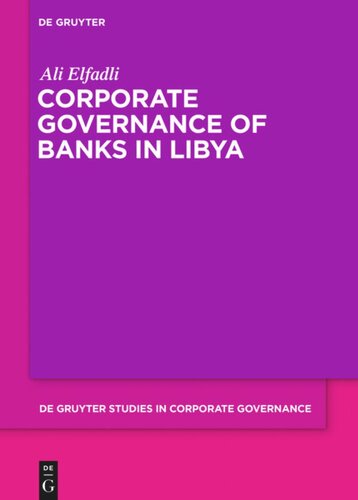

Most ebook files are in PDF format, so you can easily read them using various software such as Foxit Reader or directly on the Google Chrome browser.
Some ebook files are released by publishers in other formats such as .awz, .mobi, .epub, .fb2, etc. You may need to install specific software to read these formats on mobile/PC, such as Calibre.
Please read the tutorial at this link: https://ebookbell.com/faq
We offer FREE conversion to the popular formats you request; however, this may take some time. Therefore, right after payment, please email us, and we will try to provide the service as quickly as possible.
For some exceptional file formats or broken links (if any), please refrain from opening any disputes. Instead, email us first, and we will try to assist within a maximum of 6 hours.
EbookBell Team

4.8
24 reviewsThis book represents a response to a relative lack of academic research into corporate governance and especially corporate governance disclosure in the Middle East and North Africa (MENA). Specifically, the author explores recent developments in corporate governance disclosure produced by Libyan commercial banks. Along with other corporate governance mechanisms, disclosure plays an essential role in discharging accountability to and protecting shareholders, enhancing corporate performance and reducing the risk of financial crises. In order to improve corporate governance disclosure, it is necessary to understand the context in which it takes place. The MENA countries have unique characteristics, and those involved in the Arab Spring have been affected in different ways. This book provides up to date research into corporate governance disclosure in the context of Libya following the Arab Spring. The banking sector plays a crucial role in the Libyan economy and has specific characteristics which make corporate governance more important than in other sectors, yet research in this sector is rare. Furthermore, the banking sector in Libya has seen significant corporate governance reforms in recent years. As one of the most significant oil producing countries, Libya’s political and business environments have been dramatically affected by the Arab Spring. The author discusses how banks have responded to these reforms and the ways in which their corporate governance disclosure has evolved.